Links to external sources may no longer work as intended. The content may not represent the latest thinking in this area or the Society’s current position on the topic.
Networking event for Industry Fellows and Entrepreneurs in Residence

This Industry College networking event takes place for the first time online on 19 & 20 November 2020.
This conference will address cross-sector collaborations by bringing together past and current Royal Society Industry Fellows, Entrepreneurs in Residence and their collaborators.
Participants will have the opportunity to discuss issues and successes and hear about the wider work of the Society. Training courses will also be offered to participants.
The Royal Society Industry summer placement programme supports students to complete a placement with an Industry Fellow. We will be joined at this event by our summer students, who will present their work.
As well as former and current Industry Fellows and Entrepreneurs in Residence, there will be a limited number of places at this event for others interested in the relationship between industry and academia. If you would like to attend, please email industry@royalsociety.org with a short explanation as to why you are interested in attending.
Organisers
Schedule
| 13:00 - 16:00 |
Building students entrepreneurial potential
This interactive workshop for Industry PhD and summer students will explore what it means to be entrepreneurial and provide opportunities for you to consider your own entrepreneurial competences and aspirations. We will draw from current thinking and frameworks, so that you can takeaway tools and language widely used in business and industry. 
Lisa McMullan, The Women’s Organisation

Lisa McMullan, The Women’s OrganisationLisa is a mentor and facilitator working with individuals and teams to build their entrepreneurial capacity. With significant experience of working directly with academics and researchers as well would-be entrepreneurs, small business owners and social enterprise leaders, Lisa supports students and educators to adopt an entrepreneurial approach to career and professional development. Key areas of interest in include supporting the application and commercialization of research and supporting women’s entrepreneurship in the UK and internationally. Lisa's workshops will explore what it means to be entrepreneurial and provide opportunities to consider individual entrepreneurial competences and aspirations. Drawing from current thinking and frameworks, participants will become familiar with tools and language widely used in enterprise and industry. |
|---|---|
| 13:30 - 15:30 |
Networking in a Virtual World
There's never been a more important time to master online networking, for now and for the future. This training will show you how to develop strategies and techniques for building and maintaining your online presence, so that you stand out for potential collaborators and partners. 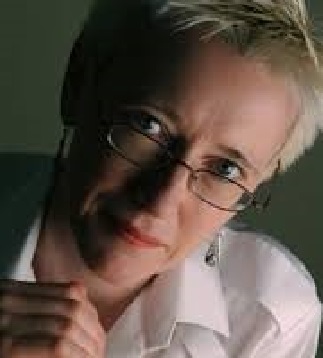
Dr Nessa Carey

Dr Nessa CareyNessa has just completed two and a half years as an EiR at the University of Oxford, supporting innovations in the medical and health sectors. She's had a very varied career, originally following the classic academic route at Imperial College, where she left her position as a Senior Lecturer in Molecular Biology in 2001 to join the biotech industry. Following nearly 15 years in biotech and big pharma, where she specialised in developing collaborative approaches in emerging areas of biology, she spent five years building the first internationally accredited course in technology transfer delivered in China, training hundreds of professionals. Nessa has provided consultancy to a number of the UK's leading PRSEs, and has served on/chaired panels and schemes for MRC, BBSRC and UKRI. She is a non-executive director for two businesses and the author of three popular science books. |
| 14:00 - 16:00 |
Commercial Literacy
Building on the successful summer series, "Commercial Literacy" returns to share the lived experience of the Entrepreneurs in Residence and other experts within the Royal Society’s Industry College network. This session will cover fundamental knowledge on business and IP, and will be split into two during the workshop. 1. Intro business. This session taken by James Otter, EiR at the University of Southampton, will be suitable for individuals who are interested in learning more about business principles. 2. Practicalities of negotiating IP. This session will be taken by Dr Pete Hotten, EiR at the University of Swansea, and will discuss the methods and key details needed to consider in order to negotiate a deal over IP rights. 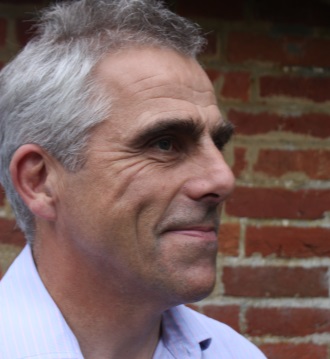
James Otter, Founder of CommLit.Online, Ellipson, and former Entrepreneur in Residence

James Otter, Founder of CommLit.Online, Ellipson, and former Entrepreneur in ResidenceJames was one of the RS EIRs at the University of Southampton from 2018 to 2021. He was sponsored by the University of Southampton’s Institute for Life Sciences. During this time he mentored a range of start-ups and started the commercial literacy course, which gives academic entrepreneurs a grounding in business issues. Over the last 20 years he has led a range of turnarounds of technology companies in a range of sectors including genomics, drug delivery, health IT, nanotechnology, veterinary MRI and sound and vibration instrumentation. He has chaired or been an NED on Octopus Venture Capital Trusts since 2004. His earlier corporate career was with Zeneca Agrochemicals (now Syngenta) where he held a range of international commercial management positions, and before Zeneca he worked with aid organisations in the field in Nepal and the Sahel. James has a degree in Natural Sciences from Cambridge and an MBA from INSEAD. 
Dr Pete Hotten, NuAge Vision

Dr Pete Hotten, NuAge VisionWith 25+ years’ experience in executive and non-executive roles within both the private and public sectors Pete has developed the ability to maximise the interaction between the research and industrial domains. Initially trained in chemistry and microbiology Pete retains a particular interest in the life sciences. From heading the IP strategy in a biotech to launching a series of spin-out companies from universities Pete has worked on a diverse set of technologies; from bone grafts to pollination and various molecular biology applications. Pete has recently been appointed a Royal Society Entrepreneur-in-Residence at Swansea University where he is actively providing mentoring and is involved in the genesis of more spin-outs. |
Chair
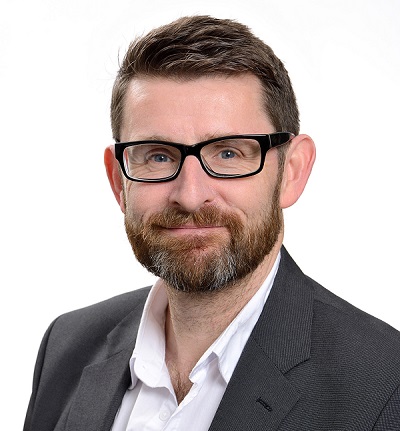
Professor Joe Sweeney, University of Salford

Professor Joe Sweeney, University of Salford
Professor Joe Sweeney was awarded a BSc in Chemistry and elected an Associate of the Royal College of Science at Imperial College, and carried out a PhD studying synthetic uses of aziridines and allylstannanes at the University of Oxford. In 1990, Joe was appointed as Lecturer in Chemistry at the University of Bristol where he developed research projects focused on new methods for preparation and use of polyhydroxylated ring structures, aziridines and metalled furanones, and the total synthesis of several naturally-occurring lactones.
He then moved to a Readership in Organic Chemistry at the University of Reading. In 2007, Joe was awarded the inaugural Faculty Output Prize at the University of Reading for his group's publication on asymmetric rearrangements, and became Professor of Synthesis and Chemical Biology. In 2008, Joe was awarded a Royal Society Industry Fellowship with AstraZeneca, which was later extended. Joe is now Dean for the School of Science, Engineering and Environment at the University of Salford.
| 09:30 - 09:35 |
Programme update
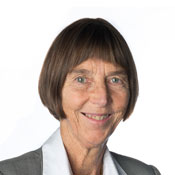
Dame Sue Ion GBE FREng FRS

Dame Sue Ion GBE FREng FRSDame Sue Ion GBE FRS FREng is Hon President of the National Skills Academy for Nuclear. She was previously Chairman of the UK Nuclear Innovation Research Advisory Board (NIRAB). She represents the UK on a number of international review and oversight committees for the nuclear sector including the Euratom Science and Technology Committee which she chaired until late 2018. She was the only non-US member of the US Department of Energy’s Nuclear Energy Advisory Committee on which she has served from 2005-2020.She currently serves as a member of the Office of Nuclear Regulation Independent Advisory Panel. Sue spent 27 years with British Nuclear Fuels Ltd (BNFL) rising to the position of Chief Technology Officer in 1992, a post she held until 2006 when she assumed a number of mainly voluntary roles in Science and Engineering, including membership of the UK Council for Science and Technology and the Engineering and Physical Sciences Research Council (EPSRC). She was Vice President of the Royal Academy of Engineering 2002-2008 and chaired its MacRobert Committee 2013-2019. Sue was Deputy Chair of the Board of the University of Manchester until September 2018 and currently serves on the Board of the University of Central Lancashire. Her core expertise is in materials science and engineering associated with the nuclear sector. Sue is a member of the Chief Scientific Advisor for Wales’s Science and Innovation Advisory Council. She has been a Visiting Professor in the Department of Materials at Imperial College since 2006, holds an Honorary Professorship at the University of Manchester and is now Chair of the Royal Society Science, Industry and Translation Committee. |
|---|
Chair

Professor Joe Sweeney, University of Salford

Professor Joe Sweeney, University of Salford
Professor Joe Sweeney was awarded a BSc in Chemistry and elected an Associate of the Royal College of Science at Imperial College, and carried out a PhD studying synthetic uses of aziridines and allylstannanes at the University of Oxford. In 1990, Joe was appointed as Lecturer in Chemistry at the University of Bristol where he developed research projects focused on new methods for preparation and use of polyhydroxylated ring structures, aziridines and metalled furanones, and the total synthesis of several naturally-occurring lactones.
He then moved to a Readership in Organic Chemistry at the University of Reading. In 2007, Joe was awarded the inaugural Faculty Output Prize at the University of Reading for his group's publication on asymmetric rearrangements, and became Professor of Synthesis and Chemical Biology. In 2008, Joe was awarded a Royal Society Industry Fellowship with AstraZeneca, which was later extended. Joe is now Dean for the School of Science, Engineering and Environment at the University of Salford.

Alex van Someren, Managing Partner, Amadeus Capital Partners

Alex van Someren, Managing Partner, Amadeus Capital PartnersAlex van Someren is Managing Partner of the Seed Funds at Amadeus. He is a director or an observer on the boards of the Seed Fund portfolio companies. Alex has a current investment focus on Big Data, Cloud Computing, Cybersecurity, Healthcare IT, the Internet of Things and Medical Technology. Alex left school to join Acorn Computers in the 1980s where he was extensively involved in the BBC Microcomputer project. He subsequently co-founded ANT Ltd in 1990 to produce networking products, including Web Browser software licensed to the Oracle Corporation. ANT plc was listed on the London AIM market (AIM:ANTP) in 2005 and is now positioned in the embedded software market for IPTV. In 1996 he co-founded nCipher with venture capital backing to develop internet security products using advanced cryptography. The company became a world leader in IT security, counting major banks, finance companies and governments among its customers. He subsequently raised a total of £14 million in venture capital funding before he led the company to a listing on the London Stock Exchange in 2000 (LSE:NCH) at a £350 million valuation. nCipher plc was sold to Thales SA in 2008. |
| 10:00 - 10:10 |
3+1 things they don't tell you about technology transfer

Dr Lampros Litos, NCUB

Dr Lampros Litos, NCUBLampros is currently leading on digital services at the National Centre for Universities and Businesses. Starting off as a chemical engineer and quality manager in industry, Lampros has been working on knowledge exchange projects for the past 15 years in R&D roles in factories or knowledge transfer roles (KTN, RSC), as well as conducting research at Cambridge University. An engineer at heart, who loves to explore complex industry problems and aims at putting digital knowledge exchange tools at the hands of scientists, engineers and managers in the UK. |
|---|
Chair

Professor Joe Sweeney, University of Salford

Professor Joe Sweeney, University of Salford
Professor Joe Sweeney was awarded a BSc in Chemistry and elected an Associate of the Royal College of Science at Imperial College, and carried out a PhD studying synthetic uses of aziridines and allylstannanes at the University of Oxford. In 1990, Joe was appointed as Lecturer in Chemistry at the University of Bristol where he developed research projects focused on new methods for preparation and use of polyhydroxylated ring structures, aziridines and metalled furanones, and the total synthesis of several naturally-occurring lactones.
He then moved to a Readership in Organic Chemistry at the University of Reading. In 2007, Joe was awarded the inaugural Faculty Output Prize at the University of Reading for his group's publication on asymmetric rearrangements, and became Professor of Synthesis and Chemical Biology. In 2008, Joe was awarded a Royal Society Industry Fellowship with AstraZeneca, which was later extended. Joe is now Dean for the School of Science, Engineering and Environment at the University of Salford.
Vapour synthesis of functional materials

Dr Chris Blackman, University College London

Dr Chris Blackman, University College LondonChris Blackman is a Professor in Inorganic Chemistry at UCL and has 100 peer-reviewed publications in environmental monitoring, health and energy applications. He has published high impact articles on gas sensing in Advanced Functional Materials [A] and an invited article for an “Emerging Investigators” special edition of Chemical Communications [B], and was a co-recipient of the 2016 PW Allen Award from The Chartered Society of Forensic Sciences for an article on, “Analysis of transferred fragrances and its forensic implications” [C]. He has collaborated with groups at Imperial, QMUL and Southampton, and groups in Spain, Belgium and Slovenia on programmes in materials synthesis, characterization and functional testing. He has a background of industrial collaboration (Pilkington, Applied Materials) and developing intellectual property (US2012/0080092, WO2008/009967) and is currently working with several UK based companies (Alphasense, McGowan Sensor Labs, Applied Nanodetectors, CodiKoat) to exploit vapour synthesis for industrial manufacture of products. |
|
Assessing the Effect of Extreme Climate Events on Dams using Remote Sensing
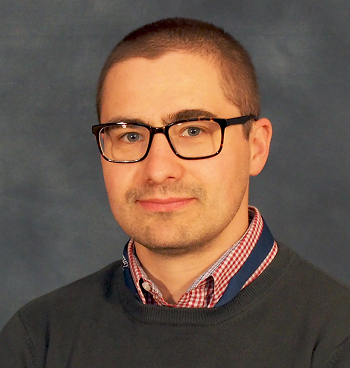
Dr Tom Shire, University of Glasgow

Dr Tom Shire, University of GlasgowDr Tom Shire is a Lecturer in Geotechnical Engineering at the University of Glasgow and a Chartered Civil Engineer. Tom carried out his PhD research at Imperial College London from 2010-2014, focusing on modelling of granular filters for embankment dams. The work was awarded the Unwin Prize for the best PhD in the Department of Civil and Environmental Engineering. From August 2016 to March 2017 Tom was a Research Associate in the Geotechnics section at Imperial College London, focusing on laboratory testing of unsaturated soils. Recent work has included laboratory testing for safety of dam materials and the Royal Society Short Industry Fellowship concentrating on the remote monitoring of embankment dams. |
|
Exploiting the power of CRISPR/Cas9 gene editing for industry-standard drug target validation

Dr Matthew Winter

Dr Matthew WinterMatt is a comparative toxicologist and pharmacologist working primarily on fish models for the last 23 years. After his PhD at the University of Manchester, he undertook post-doctoral work on biochemical biomarkers of pollution in fish at the University of Birmingham, before joining the pharmaceutical company AstraZeneca as an environmental toxicologist. During his time at AstraZeneca, he gained an increasing interest in the use of zebrafish as an alternative model for preclinical drug safety and efficacy assessment and this work has continued since his move to the University of Exeter in 2014. His work with the Royal Society started with a Short Industry Fellowship on evaluating the potential use of CRISPR/Cas9-mediated gene editing in embryo-larval zebrafish to support early target Validation in AstraZeneca. This has since evolved into a full Industry Fellowship (commenced May 2022), in which he is using AstraZeneca-developed novel gene editing technology to create more representative adult zebrafish models of human heart failure and chronic kidney disease. |
|
'Trust on the Move': Bringing Accountability to the Internet

Dr Blesson Varghese, Queen's University Belfast

Dr Blesson Varghese, Queen's University BelfastDr Blesson Varghese is a Senior Lecturer in Computer Science at the Queen's University Belfast, a Royal Society Short Industry Fellow to British Telecommunications plc and the Principal Investigator of the Edge Computing Hub in Belfast that is funded by Rakuten Mobile, Japan. He was an Honorary Lecturer at the University of St Andrews and an alumnus of the Royal Society of Edinburgh Scottish Crucible. His research tackles systems-based challenges for unlocking the scientific and societal opportunities in the next Internet frontier, Edge Computing. |
|
Gas sensing with metamaterials

Professor Anatoly Zayats, King's College London, UK

Professor Anatoly Zayats, King's College London, UKProfessor Anatoly V. Zayats is the head of the Experimental Biophysics and Nanotechnology Group at the Department of Physics, King’s College London, where he also leads Nano-optics and Near-field Spectroscopy Laboratory. He graduated and received PhD in Physics from Moscow Institute of Physics and Technology. His current research interests are in the areas of nano-optics, scanning probe microscopy, nanophotonics and plasmonics, metamaterials, nonlinear optics and spectroscopy, surface plasmons and polaritons, and optical properties of surfaces, thin films, semiconductors and low-dimensional structures. He is a holder of the Royal Society Wolfson Research Merit Award, a Fellow of the Institute of Physics, the Optical Society of America, SPIE and the Royal Society of Chemistry. |
|
Command and Control for Oceanographic Survey

Dr Maria Fox, Schlumberger Cambridge Research

Dr Maria Fox, Schlumberger Cambridge ResearchI am a computer scientist with a long research track record in automated planning, a field of Artificial Intelligence. I am a senior scientist at Schlumberger Cambridge Research, applying automated planning and scheduling to problems that arise in oil field services. Before joining Schlumberger, I was a professor of computer science at King’s College London, and before that at the University of Strathclyde. |
|

Dr Yihua Hu, University of York

Dr Yihua Hu, University of York |
Developing vitamin B12 biology for therapeutic tests

Robert Ulrich, University of Kent

Robert Ulrich, University of Kent |
|
A Dashboard For System 60

Sam Hart, University of York

Sam Hart, University of York |
|
Predicting drug binding sites from conservation, topology and probe interaction energies

Hope Britcher, University of Essex

Hope Britcher, University of Essex |
|
Interpretable goal-based prediction and planning for autonomous driving

Balint Gyevnar, University of Edinburgh

Balint Gyevnar, University of Edinburgh |
|
Modelling EM reflections at oblique incidence for incorporation into a wireless network simulation

Anna Drummond Young, University of Cambridge

Anna Drummond Young, University of Cambridge |
|
Reconstruction of PET data acquired from Positrigo's brain PET scanner

Viet Dao, University of Leeds

Viet Dao, University of Leeds |
|
Analysis of a novel mechanical bioreactor for differentiation of mesenchymal stem cells

Brogan Pathi, University of Strathclyde

Brogan Pathi, University of Strathclyde |
|
Automating behavioural monitoring of captive animals using CCTV footage

Jonas Schäfer, University of Birmingham

Jonas Schäfer, University of Birmingham |
|
Using additives to improve the performance of plastics

Ruairi Baker, University of Warwick

Ruairi Baker, University of Warwick |
|
PV charger based on buck converter

Naijia Liu, University of York

Naijia Liu, University of York |
|
Probe automation for measurements on wafer

Alin Georgian Panca, University of Southampton

Alin Georgian Panca, University of Southampton |
|
Improving BNN FPGA-based real-time object recognition system with entropy-driven filter

Elim Kwan, University of Bristol

Elim Kwan, University of Bristol |
|
The effect of triacylglycerides on cocoa butter equivalent crystallisation

Holly Ewens, University of Leeds

Holly Ewens, University of Leeds |
|
Raytracing optimisation model for 5G metamaterial reflectors
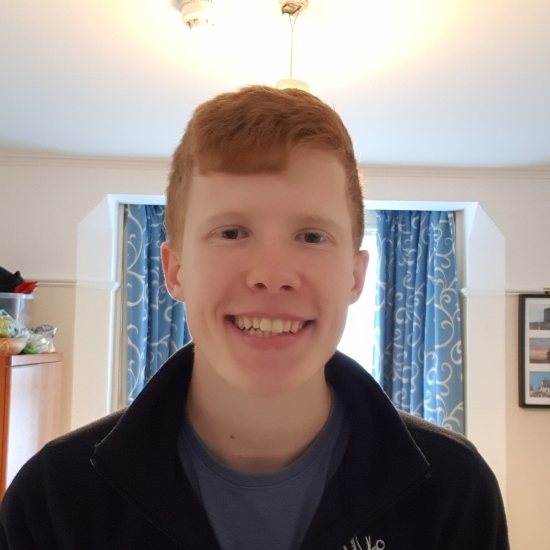
Kieran Dalton, University of Cambridge

Kieran Dalton, University of Cambridge |
|
Distribution network readiness for mass rollout of electric vehicles

Alexander Karlsson, University of Warwick

Alexander Karlsson, University of Warwick |
| 14:00 - 16:00 |
Leadership in collaborative research
Working across sectors has multiple benefits for researchers in basic and applied fields, but these alliances can feel daunting. The trainer will share methodologies for successful leadership of these relationships, from preliminary discussions through to post-completion, based on her own experiences across academia and industry. 
Dr Nessa Carey

Dr Nessa CareyNessa has just completed two and a half years as an EiR at the University of Oxford, supporting innovations in the medical and health sectors. She's had a very varied career, originally following the classic academic route at Imperial College, where she left her position as a Senior Lecturer in Molecular Biology in 2001 to join the biotech industry. Following nearly 15 years in biotech and big pharma, where she specialised in developing collaborative approaches in emerging areas of biology, she spent five years building the first internationally accredited course in technology transfer delivered in China, training hundreds of professionals. Nessa has provided consultancy to a number of the UK's leading PRSEs, and has served on/chaired panels and schemes for MRC, BBSRC and UKRI. She is a non-executive director for two businesses and the author of three popular science books. |
|---|---|
| 14:00 - 16:00 |
Commercial Literacy workshop 2
Building on the successful summer series, "Commercial Literacy" returns to share the lived experience of the Entrepreneurs in Residence and other experts within the Royal Society’s Industry College network. This session will cover fundamental knowledge on business and IP, and will be split into two during the workshop. 1. Business models: Planning how to make money. This session taken by James Otter, EiR at the University of Southampton, will feature his approaches to monetising your ideas. 2. Protecting IP. This session will be taken by Dr Pete Hotten, EiR at the University of Swansea, and will discuss the methods and key details needed to consider in order to protect your ideas 
Dr Pete Hotten, NuAge Vision

Dr Pete Hotten, NuAge VisionWith 25+ years’ experience in executive and non-executive roles within both the private and public sectors Pete has developed the ability to maximise the interaction between the research and industrial domains. Initially trained in chemistry and microbiology Pete retains a particular interest in the life sciences. From heading the IP strategy in a biotech to launching a series of spin-out companies from universities Pete has worked on a diverse set of technologies; from bone grafts to pollination and various molecular biology applications. Pete has recently been appointed a Royal Society Entrepreneur-in-Residence at Swansea University where he is actively providing mentoring and is involved in the genesis of more spin-outs. 
James Otter, Founder of CommLit.Online, Ellipson, and former Entrepreneur in Residence

James Otter, Founder of CommLit.Online, Ellipson, and former Entrepreneur in ResidenceJames was one of the RS EIRs at the University of Southampton from 2018 to 2021. He was sponsored by the University of Southampton’s Institute for Life Sciences. During this time he mentored a range of start-ups and started the commercial literacy course, which gives academic entrepreneurs a grounding in business issues. Over the last 20 years he has led a range of turnarounds of technology companies in a range of sectors including genomics, drug delivery, health IT, nanotechnology, veterinary MRI and sound and vibration instrumentation. He has chaired or been an NED on Octopus Venture Capital Trusts since 2004. His earlier corporate career was with Zeneca Agrochemicals (now Syngenta) where he held a range of international commercial management positions, and before Zeneca he worked with aid organisations in the field in Nepal and the Sahel. James has a degree in Natural Sciences from Cambridge and an MBA from INSEAD. |
